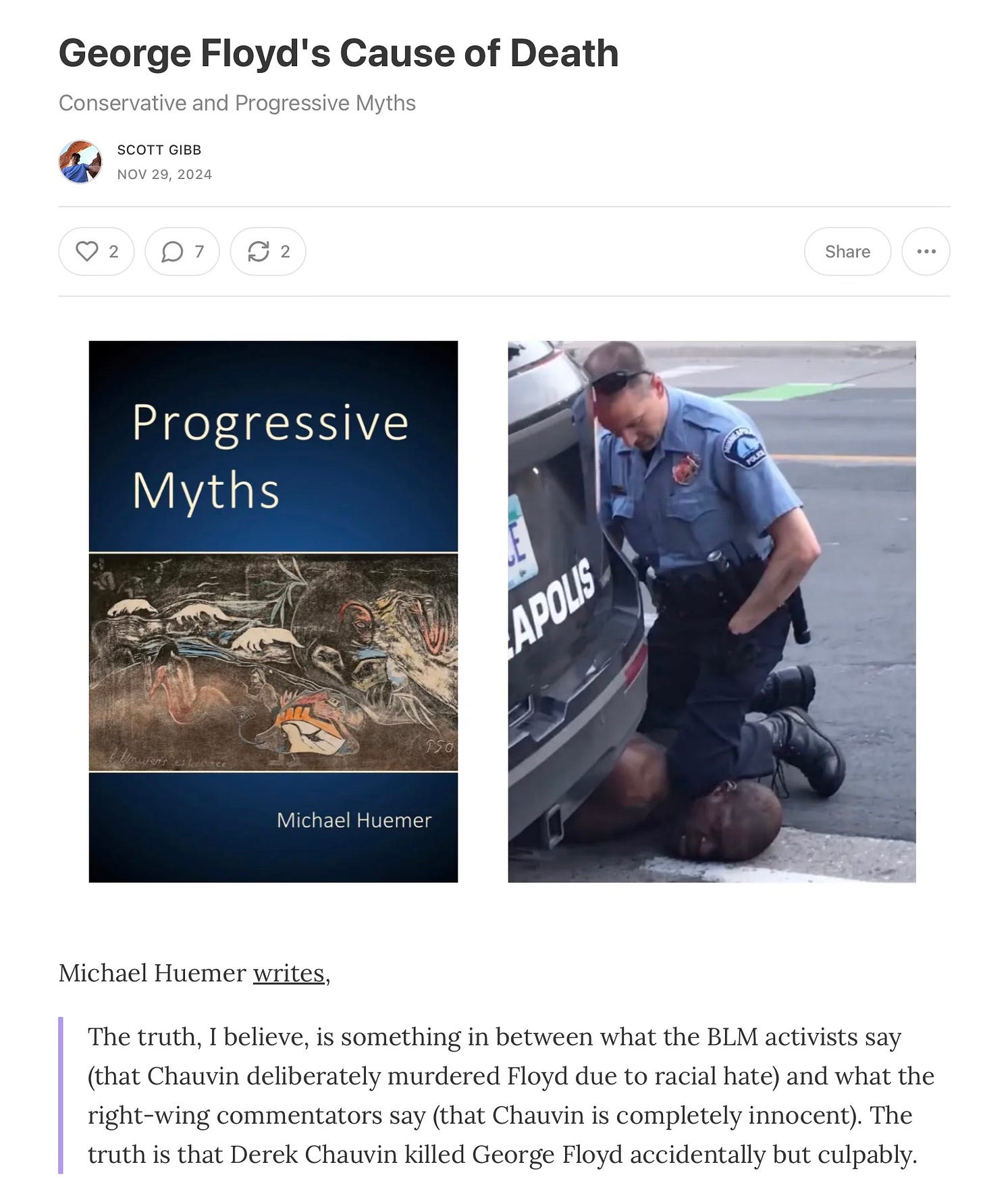The Reformation of the Democratic Party
Drugs, incentives, indulgences, and helping the other team be more competitive.
In a fascinating post David Friedman ponders the reformation the Democratic Party. He begins with a short description of the Hoteling Model applied to federal political campaigning and then considers an improvement to it. Once you get past that, you come to the juicier stuff from Gavin Newsom and a journalist named Kelsey Piper — in his words, “a Vox journalist, a Democrat, a lady I have a high opinion of.”
Aside: David has a PhD in physics and grew up in a household of economists, so his posts can, at times read a bit like an economics or physics textbook. For example, the aforementioned post starts out a bit like that. Having read many engineering and physics books myself, I probably tend to write a bit like him, but he has it worse (or better) than I do: His mom was A.B.D. PhD University of Chicago Economics; his uncle, Aaron Director was one of the founders of economic analysis of law; and I don’t know much about his dad, but will look into him when I have time.1
Anyway, once you get past the physics textbook portion of his post you find him quoting this Vox journalist regarding her ideas for reforming the Democratic Party. For example:
The [Democratic] party will not consider for Presidential or Vice Presidential nominees any candidate from a state that is shrinking. If the people voted with their feet against your rule, then fix your own shit before you seek national office. We can call this the Go Away Gavin rule.
And then he quotes Gavin Newsom,2 from Gavin’s new podcast series This is Gavin Newsom:
By the way, not one person ever in my office has ever used the word LATINX.
Yes, doubletake, Gavin Newsom is a podcaster now. Gavin says:
the Democratic Party brand has just been crushed.
Yes, we know. And, by the way, Freddie deBoer nailed it before the election results were in:
Today, left-activist spaces are dominated by the college-educated, many of whom grew up in affluence and have never worked a day at a physically or emotionally demanding job.
So after reading Friedman’s post and skimming the comments I thought, “This is all fascinating and maybe wonderful, but what does it leave out?”
Here’s my view: I see the Democratic Party as the party of higher education and bureaucracy. They are sustained by government subsidies and they conform to the dominant ideas within their subsidy bubbles. They are “conformists.” What do I mean by this?
Visit UC Santa Cruz or any similar university and you’ll see what I mean. They don’t need to win elections — they tend to get paid even if they lose. They come of age on beautiful campuses isolated from reality. Why change?
Sure some will probably get laid off over the next four years, but until their subsidies cease, their behavior won’t change much. They’re living in the redwoods, eating organic produce, and driving electric cars. Why change?
Government subsidy is a drug. And like most who are fixed on a drug, they will likely remain content on that drug — in denial of reality until…they decide it’s better to get off the drug.
But when will that happen? When will truth smack the addict in the face?
It depends. It’s up to the individual. It’s a personal decision. Almost quantum mechanical, but incentives matter.
Without good incentives however, reality for them is an alternative reality — one they create with subsidies. I know these people. I came of age in their community.
What they don’t know is that our ultimate source of wealth is capitalism, which is about profit and loss. The Democratic Party isn’t exposed to the loss side of capitalism. They’re shielded from it by subsidies. DOGE cuts into these subsidies a tiny bit, but will it be enough to incentivize change?
Not in the longterm. For that we — Republicans, Democrats, libertarians, conservatives, socialists, etc. — need to learn more about government subsidies. That incentives matter. This is one of the fundamental ideas of economics.
Of course if you’re reading this, there’s a good change you already know it, but we need this to be taught to a large majority of elementary school age children in the context of the First Amendment and the Constitution. The Constitution has largely been forgotten in our elementary schools.
And we needn’t make our lives difficult by teaching advanced concepts about the Constitution. Make it fun, challenging, and age appropriate. Then repeat and review.
For example: Government subsidy is like a drug that shields us from truth. In a Christian elementary school include the following: If we understand this, we can come to Jesus and repent.3 Make it a game. Create a competition around it.
So David Friedman is one step too far ahead perhaps? Thinking that the incentives have been corrected? First the subsidies need to stop. Only then can the Dems get their minds focused back on winning.
Gavin Newsom will be canceled by his past (see Kamal Harris for example) and by the higher education and bureaucratic establishments that enforce conformity to subsidy bubble ideologies. From Friedman’s post:
Newsom's remarks triggered an immediate backlash from within the progressive movement, with former Chicago mayor Lori Lightfoot calling them "disgusting."
Financial incentives are a huge factor blinding the Democratic Party. They live in the most expensive, most educated and most beautiful places. Why change?
They won’t change unless their financial situation changes for the worse.
How do I know? I tried for years to talk sense into them. Look at the Catholic Church prior to The Reformation. Hooked on indulgences.
Me to ChatGPT: What was the Reformation?
ChatGPT:
The Reformation was a religious movement in the 16th century that led to the split of Christianity into various Protestant denominations, challenging the authority and teachings of the Roman Catholic Church. It began in 1517 when Martin Luther, a German monk, nailed his 95 Theses to a church door in Wittenberg, criticizing the Church's practices, particularly the sale of indulgences. Luther's ideas sparked widespread religious, political, and social changes across Europe.
Key figures like John Calvin and Huldrych Zwingli also contributed to the Reformation by promoting ideas that rejected Catholic teachings, such as the belief in salvation through faith alone and the authority of the Bible over Church tradition. The Reformation resulted in significant religious, cultural, and political transformations, contributing to the development of modern Western Christianity and the rise of Protestantism. It also led to conflicts, including the Thirty Years' War, and influenced the course of European history.
As long as the Democratic Party can sustain itself on indulgences, it won’t change much. Without technological change of the printing press who would Martin Luther be? Not very well remembered. The Reformation wouldn’t have occurred.
So technology will likely play a role in reforming the Democratic Party. I think Socratic dialogue, combined with AI at all levels of education will play a large role. Arnold Kling sees AI “as an interface, not an encyclopedia:”
Many people treat AI as an “answer-bot,” along the lines of Google search. Many of the metrics used to evaluate models are based on this thinking. Experts tell us how well the models perform on exams in math or science. Or they tell us how useful (or not) the models are in doing research.
But I do not think that answering queries is the compelling use case for AI. If we start from where Google was in 2023, before ChatGPT, the improvement provided by Large Language models will be less than earth-shaking.
In my opinion, the key characteristic of the new AI is not encyclopedic knowledge. It is its personality. For the first time in the history of computing, we can relate to a computer using human language. We don’t have to learn how to write code or navigate a menu. I think that the economic effect of AI will depend on how far this can be taken.
Okay, but what do you end up with if you give an encyclopedia a personality that you can relate with using human language; one that elementary school kids and grandmas can engage in dialogue with?
As Kelsey Piper says, it should pass the “grandma test:”
Every government process that a normal person might have to interact with, including permitting, licensing, zoning, applying for benefits, and paying taxes, must pass the grandma test: you can explain it to a grandma on the phone and she can do it in under 30 minutes.
AI makes passing the “grandma test”, the “kid test”, the “working class test” much easier. You just talk to the computer and learn — as if you’re talking to a wise mentor.
Might AI help the Democratic Party get back on its feet? Right now I have a feeling the Democratic Party is dead.
So what should we do? Start using AI. Start policing the Republican Party. Start filling in where the Democratic Party is missing. Start inserting more competition into the political game to bring a more accurate version of the truth to our communities.
An anesthetized Democratic Party is not a competitive party. They need help seeing that bad incentives are hurting their ability to find truth.
What is the best way to find truth? Let’s talk more next time about the First Amendment and how it applies to Progressive Myths sustained by Congressional funding.
Let’s see if we can get Gavin Newsom and Donald Trump to agree on George Floyd’s cause of death.
Let’s see if we can get Kelsey Piper to agree with Michael Huemer about the origins of woke ideology.
In 1960's America, there were two looming political issues that concerned liberal people: the war in Vietnam and civil rights. Many faculty and especially students on college campuses were strongly opposed to the Vietnam War. More importantly for our story, they were strongly opposed to the rampant racism in American society....
We need more competition and more cooperation. As John Mackey writes
Capitalism, I began to understand, was not so much a top-down imposed system but, rather, an evolutionary result of letting people choose their own economic paths. And if economic freedom was the foundation of capitalism, then both cooperation and competition seemed to be the essential engines that made it run.
We need to admit there is some truth in the progressive viewpoint, and we need their help in creating a better society. So in addition to examining basic incentives, let’s consider what role competition and cooperation play in progressive ideology. If we can understand where they’re coming from in terms of “our language” we stand a better chance of making progress toward shared goals.
We can even let them “win a bit” to build their confidence. Give them a challenge they can overcome in order to lead them in the right direction. Give them some hints. This is what David Friedman is trying to do in his post. He’s trying to help them along. We should do the same as long as it’s in the direction of truth.
Sarcasm.
(who is attempting to re-invent himself as an anti-woke moderate Democrat)
I’m not a believer, but I love the metaphor, and find it helpful and powerful.







